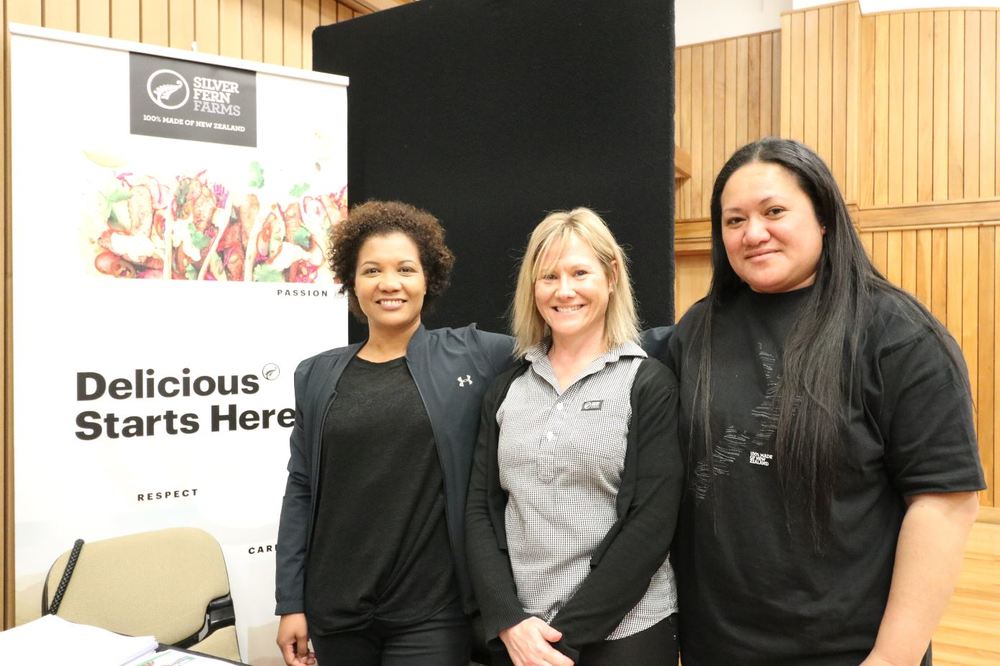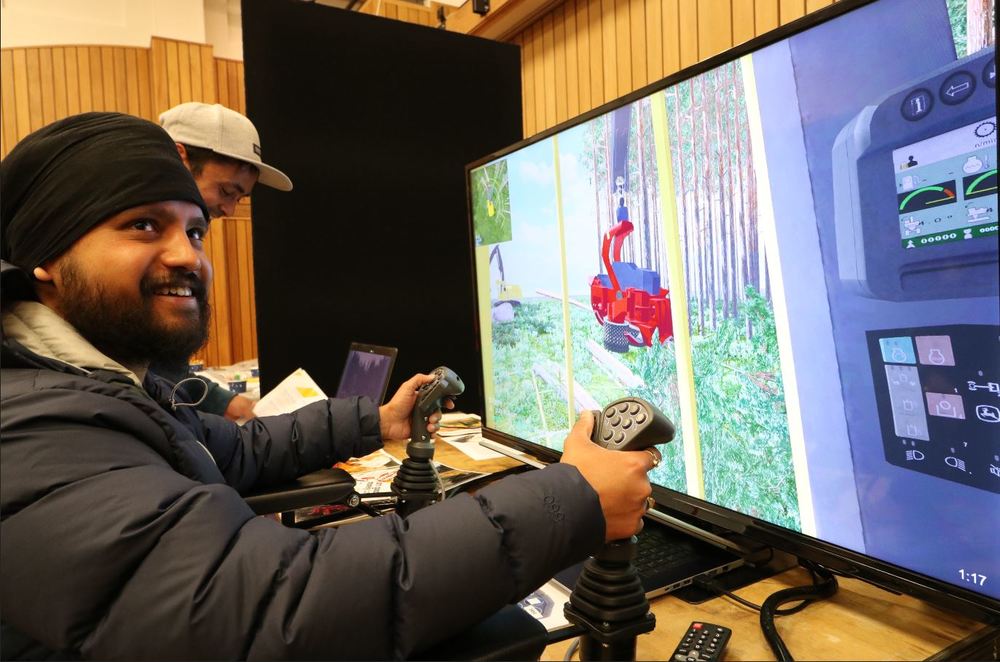Locals cool on South Otago jobs
Queenstown App
15 October 2020, 2:31 AM
 Clutha District mayor Bryan Cadogan with Community Recovery Programme Coordinator Ruth Carraway (right) and Jobbortunities team member Justine Barrie
Clutha District mayor Bryan Cadogan with Community Recovery Programme Coordinator Ruth Carraway (right) and Jobbortunities team member Justine Barrie Only around 300 people turned up to look for work at a jobs expo in Queenstown on Saturday (11 October), despite the impact of Covid-19 on the region.
Clutha District Mayor Bryan Cadogan organised the 'Jobbortunities' event as he recognised there were thousands of people struggling for work in Queenstown and many unfilled positions in South Otago.
And there were plenty of opportunities for those willing to make the move.
Forty employers from viticulture, horticulture, farming, meat processing and forestry set up stalls looking to fill positions. Otago University and various polytechs were also there, to provide info on study opportunities.
Altogether, there were about 8000 opportunities.
So, the numbers through the door were a little disappointing, Cadogan said, although employers had found the session very helpful.
"Having heard the numbers that were in Queenstown, I supposed we hoped it would be in the thousands", Cadogan said.
"But we'll keep it positive. We're pleased with how it's gone. The employers have loaded up on names. They have lists of hundreds of names.
"So, as we said at the start, everyone who gets a job from this today is a person who can move on with their lives."
The first two 'Jobbortunities' events were held in Balclutha and the University of Otago, with 120 people turning up to the first, and around 400 students to the second.
Liz Collins, HR advisor at Silver Fern Farms' Finegand plant, in Balclutha, said the Queenstown session had been "really valuable".
"It's helped us get a clear regional picture and wider catchment. We've got almost 100 names already and two hours still to go.
"We've already started our meat season and we want to ramp up and increase our kill levels, but can't find the staff to process what we need."
At peak, they have around 1300 staff and process 10,000 lambs a day and 800 beef cattle. But they're short of about 300 staff.
"There's a lot of competition for staff, so we're very happy to pick up the numbers. Our wages are pretty good, well above average, but the problem is retention, especially with the commute."
A butcher or boner could be earning about $80k a year, but competition from Dunedin's new hospital build and other projects means it's difficult to find staff to train.

From left, Edwina Smith, Nicola Ford and Liz Collins from Finegand Silver Fern Farms
On Friday, a visa information session was held in Queenstown for migrants. Cadogan said the session was overwhelmed, with people queuing out the door, but many went away disappointed, realising visa restrictions wouldn't allow them to take up new jobs.
"It was a concern to see the angst among the foreign nationals," Cadogan says.
"To me, as an outsider looking in, there is no rhyme and reason. These people have been invited to our country ... some can stay, some can go, some burst into tears, some don't.
"The idea they're taking jobs from Kiwis can't be right. The main thing I see is an imbalance between the work available and all these wonderful foreign nationals actively looking for work, but not allowed to take the opportunities."
Amar Deep, 30, and wife Nethmi, attended Saturday's event. The couple, from Mumbai in India, have been in Queenstown for five-and-a-half years.
"I'm looking for work," he says.
"I used to work for a hotel and my visa is kind of bound to that, but I lost my job in June, so it has been difficult. We're very thankful to Red Cross have helped us.
"Hopefully once I get a job offer I can my visa."

Amar Deep on the Mike Hurring Logging and Contracting simulator
New Zealand's visa system is complex, but many employers are now calling for the restrictions to be relaxed.
Blair Mcnaughton, director of labour supply firm Remarkable Labour, told LWB last week that Queenstown itself needs about 300 workers to fill positions in the construction industry, while there are many jobs available in hospo.
The roles are typically filled by the migrant workforce, but the borders are closed, New Zealand has paused on issuing working holiday visas, and many migrants are leaving or have left.
Another employer at Saturday's session was Mike Hurring Logging and Contracting, which operates out of Balclutha but has the three-year contract for Coronet Peak forest.
It has 52 staff, in eight crews around Otago.
Josh Hurring says they're mainly looking for Kiwis or permanent residents, because so much training is needed for the role.
"Skilled staff is a problem. It's probably a minimum of six months to be trained in one aspect.
"Then there's different levels, machine operating, breaking up the hill.
"We're trying to change the perspective of it being dangerous. It did have a bad rap for a while, but now of 52 staff 50 will be in machines, in closed cabs, so that's improved everything.
"It's not a chainsaw and a dozer anymore, it's multi-million dollar machines."
Hurring had a simulator at the event on the day.
Both the Friday and Saturday sessions in Queenstown were funded through the Mayors' Task Force for Jobs Community.
Cadogan says Community Recovery Programme coordinator Ruth Carraway will follow up on the scheme over the coming months, reaching out further into the community.
Carraway says: "The people here today are the ones that are ready to work and don't have barriers, whereas the ones I'll grab hold of later might be the ones that don't have the motivation, don't believe their work ready and do have barriers.
"So, these employers can provide pastoral support, helping people get to work on time and change their lives."

